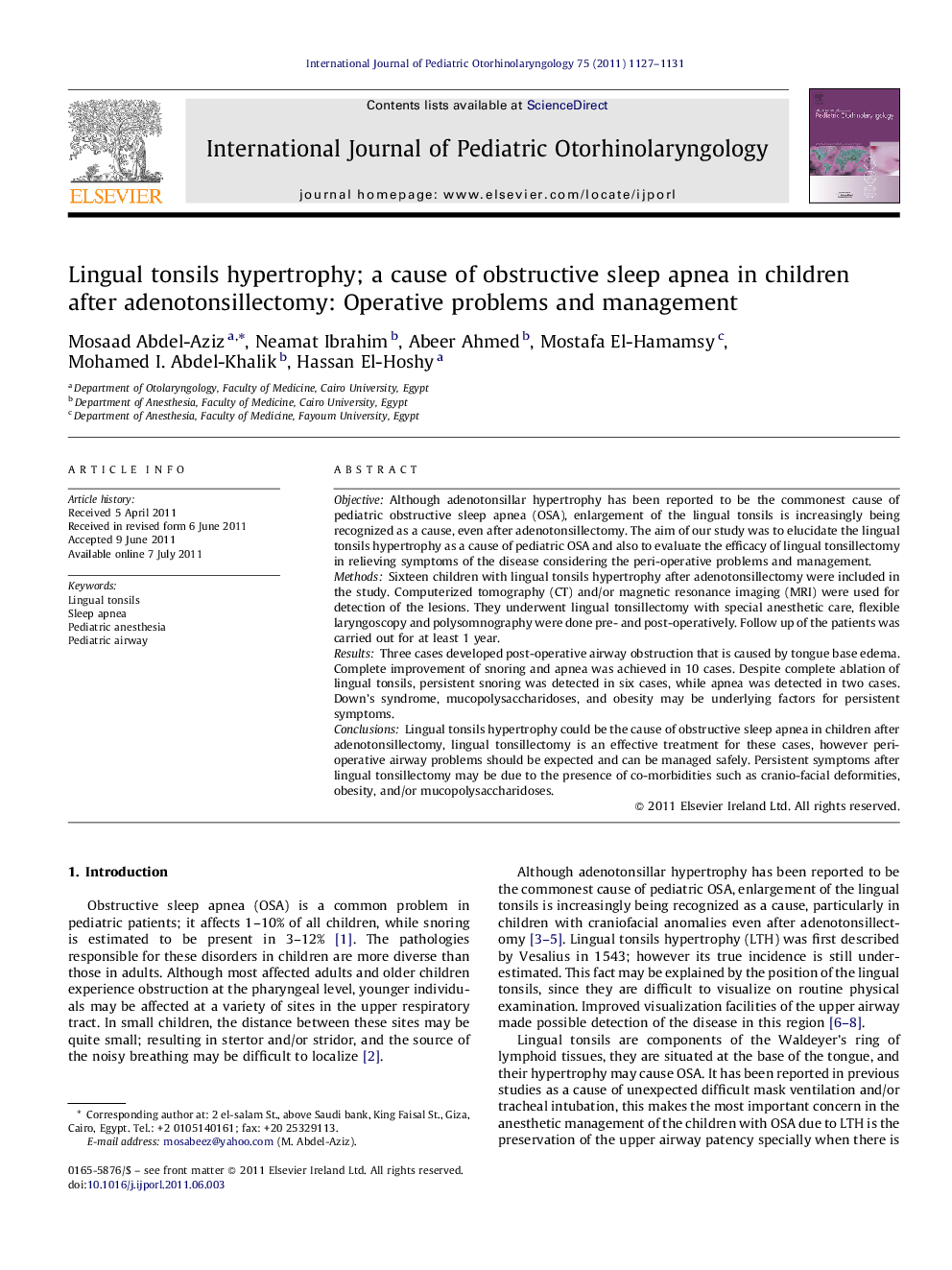| کد مقاله | کد نشریه | سال انتشار | مقاله انگلیسی | نسخه تمام متن |
|---|---|---|---|---|
| 4113580 | 1606041 | 2011 | 5 صفحه PDF | دانلود رایگان |

ObjectiveAlthough adenotonsillar hypertrophy has been reported to be the commonest cause of pediatric obstructive sleep apnea (OSA), enlargement of the lingual tonsils is increasingly being recognized as a cause, even after adenotonsillectomy. The aim of our study was to elucidate the lingual tonsils hypertrophy as a cause of pediatric OSA and also to evaluate the efficacy of lingual tonsillectomy in relieving symptoms of the disease considering the peri-operative problems and management.MethodsSixteen children with lingual tonsils hypertrophy after adenotonsillectomy were included in the study. Computerized tomography (CT) and/or magnetic resonance imaging (MRI) were used for detection of the lesions. They underwent lingual tonsillectomy with special anesthetic care, flexible laryngoscopy and polysomnography were done pre- and post-operatively. Follow up of the patients was carried out for at least 1 year.ResultsThree cases developed post-operative airway obstruction that is caused by tongue base edema. Complete improvement of snoring and apnea was achieved in 10 cases. Despite complete ablation of lingual tonsils, persistent snoring was detected in six cases, while apnea was detected in two cases. Down's syndrome, mucopolysaccharidoses, and obesity may be underlying factors for persistent symptoms.ConclusionsLingual tonsils hypertrophy could be the cause of obstructive sleep apnea in children after adenotonsillectomy, lingual tonsillectomy is an effective treatment for these cases, however peri-operative airway problems should be expected and can be managed safely. Persistent symptoms after lingual tonsillectomy may be due to the presence of co-morbidities such as cranio-facial deformities, obesity, and/or mucopolysaccharidoses.
Journal: International Journal of Pediatric Otorhinolaryngology - Volume 75, Issue 9, September 2011, Pages 1127–1131